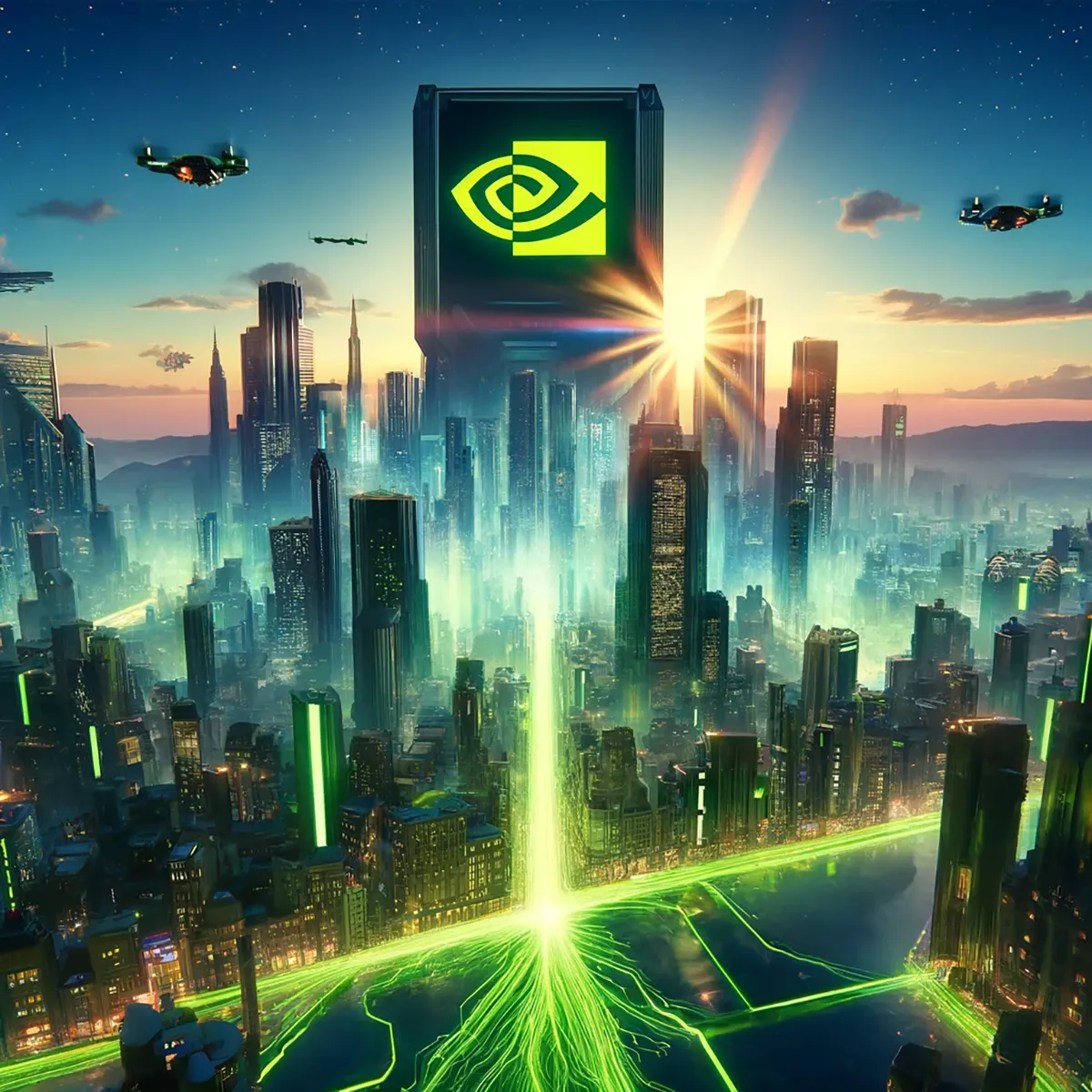Last update on 2024-03-05
NVIDIA (NVDA) Explained
An Overview of NVDA: Its Business Strategy, Core Products, Major Competitors, and Essential Insights into its Role in the Semiconductors Industry
Nvidia is the top designer of discrete graphics processing units that enhance the experience on computing platforms. The firms chips are used in a variety of end markets, including high-end PCs for gaming, data centers, and automotive infotainment systems. In recent years, the firm has broadened its focus from traditional PC graphics applications such as gaming to more complex and favorable opportunities, including artificial intelligence and autonomous driving, which leverage the high-performance capabilities of the firms products.

Current Business Strategy
NVIDIA's current strategy focuses on expanding its leadership in artificial intelligence (AI) and graphics processing unit (GPU) technologies. The company is heavily invested in developing cutting-edge solutions for gaming, professional visualization, data center, and automotive markets. Additionally, NVIDIA aims to further penetrate the AI and machine learning sectors by offering advanced platforms like DGX for AI research and the CUDA programming model to exploit parallel computing capabilities. The strategy involves continuous innovation, strategic partnerships, and acquisitions to enhance its product portfolio and market reach.
Most known Products
Here is the list of the 5 most well-known products of NVIDIA (NVDA):
- GeForce Series: A line of graphics processing units (GPUs) designed primarily for gamers and gaming PCs. GeForce GPUs are known for their high performance and ability to render complex graphics at high frame rates, offering an immersive gaming experience.
- Quadro Series: High-end GPUs aimed at professionals in design, animation, and video editing. Quadro series cards offer precise and high-quality rendering capabilities for professional-grade software applications.
- Tesla Series: GPUs designed for general-purpose computing on graphics processing units (GPGPU). Used in data centers and for scientific computation, Tesla cards are optimized for parallel processing tasks, such as deep learning and high-performance computing (HPC).
- NVIDIA SHIELD: A range of products including a portable game console, a streaming media player, and smart TVs. SHIELD devices are built to leverage NVIDIA's gaming and graphics technology, offering high-quality streaming services and gaming experiences.
- DGX Systems: Designed for AI and deep learning, DGX systems are built on NVIDIA's GPUs and provide powerful compute capabilities for AI research, large-scale AI infrastructure, and data analytics. DGX systems offer an advanced platform for executing complex AI algorithms efficiently.
Competitors
Here is the list of the main 5 competitors of NVIDIA (NVDA):
- AMD: Advanced Micro Devices, Inc. (AMD) competes with NVIDIA in the GPU market, offering its Radeon series of gaming and professional graphics cards. AMD also provides CPUs that compete with NVIDIA's offerings, especially in the gaming and high-performance computing markets.
- INTEL: Intel Corporation competes with NVIDIA primarily in the data center and AI computing space with its Xeon processors and is also venturing into the discrete GPU market with its Xe graphics cards, aiming to offer alternatives in both professional and consumer graphics sectors.
- QCOM: Qualcomm Incorporated competes in the mobile GPU segment with its Adreno GPUs, which are integrated into Snapdragon processors, offering competition to NVIDIA in the mobile and automotive markets.
- AAPL: Apple Inc. enters as a competitor by designing its own GPUs for the iPhone, iPad, and Mac. Apple's in-house development of graphics and neural engine processors presents a competitive edge in integrated graphics performance, challenging NVIDIA's dominance.
- GOOGL: Alphabet Inc. competes with NVIDIA in the AI and cloud computing space. Google's development of TensorFlow processors (TPUs) and its investment in AI and machine learning technologies position it as a strong competitor in providing AI and cloud-based services.
Obligatory risk notice
We would like to point out that the contents of this website are for general information purposes only and do not constitute recommendations for the purchase or sale of specific financial instruments, and therefore do not constitute investment advice. In particular, marketstorylabs.com and its creators cannot assess the extent to which information / recommendations made on the pages correspond to your investment objectives, your risk tolerance and your ability to bear losses. Therefore, if you make any investment decisions based on information on the site, you do so solely on your own responsibility and at your own risk. This in turn means that neither marketstorylabs.com nor its creators are liable for any losses incurred as a result of investment decisions based on the information on the marketstorylabs.com website or other media used.